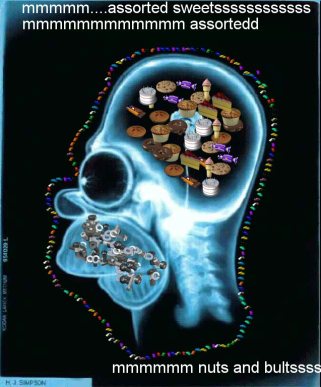
Really?
Having ADHD at childhood could increase the obesity risk later in life? Oddly enough, YES. There is increasing knowledge of scientific evidence about a positive link between this mental disorder and the risk of weight gain throughout life.
Is there any explanation for this relationship?
So, being hyperactive as a child can make that child to accumulate more body fat in the future? this is quite ambiguous. Let’s enlighten this matter. The ADHD is a neurodevelopmental disorder characterized by inattention, impulsivity, and hyperactivity. The factors contributing to the comorbidity between ADHD and obesity are supposed to be a genetic influence, fetal programming, executive dysfunctions, psychosocial stress, sleep patterns alterations, and factors directly related to energy balance (Hanć & Cortese, 2018). Among the last ones, it can be hypothesized that four inter-related mechanisms could partly explain why an ADHD brain is hard-wired for weight gain. These are low levels of physical activity, low physical fitness, sedentary behaviors, and overeating. Thus, individuals diagnosed with ADHD are more likely to do a less physical activity, to have a low fitness level, be more sedentary and eat more than they need than people without this disorder.
ADHD at childhood as a predictor of obesity across the life course
ADHD individuals have more complications to lead a healthy lifestyle in comparison with non-ADHD due to psychological dysfunctions. In addition, obesogenic factors are likely to accumulate over the life course of individuals. Collectively, children having ADHD and with an unhealthy lifestyle might become chronic, resulting in the development or maintenance of obesity later in life.
So, what can a child with ADHD do to avoid or reduce the risk of obesity in the future?
Youth aged between 6-17 years old can do a more physical activity, diminish sedentary behavior and eat healthier to avoid obesity later in life. Regarding physical activity guidelines, youth should perform 60 minutes or more of physical activity daily, as part of this they should do moderate-to-vigorous aerobic exercise, muscle strengthening activities and bone strengthening exercises at least 3 days per week. Also, sedentary behavior in youth should be limited <2 hours per day, and fruits and vegetables are recommended daily.
Take home message
Exercise your brain while your body!
References
Hanć, T., & Cortese, S. (2018). Attention deficit/hyperactivity-disorder and obesity: A review and model of current hypotheses explaining their comorbidity. Neuroscience & Biobehavioral Reviews, 92, 16–28.
Adrià Muntaner-Mas, Antonio Martinez-Nicolas and Francisco B. Ortega
